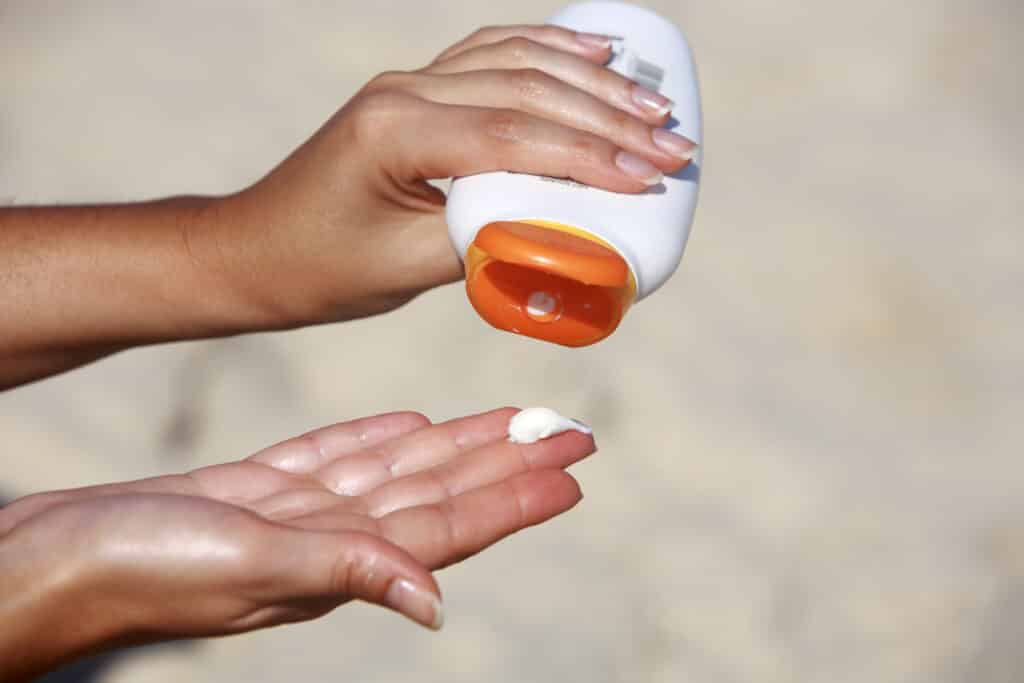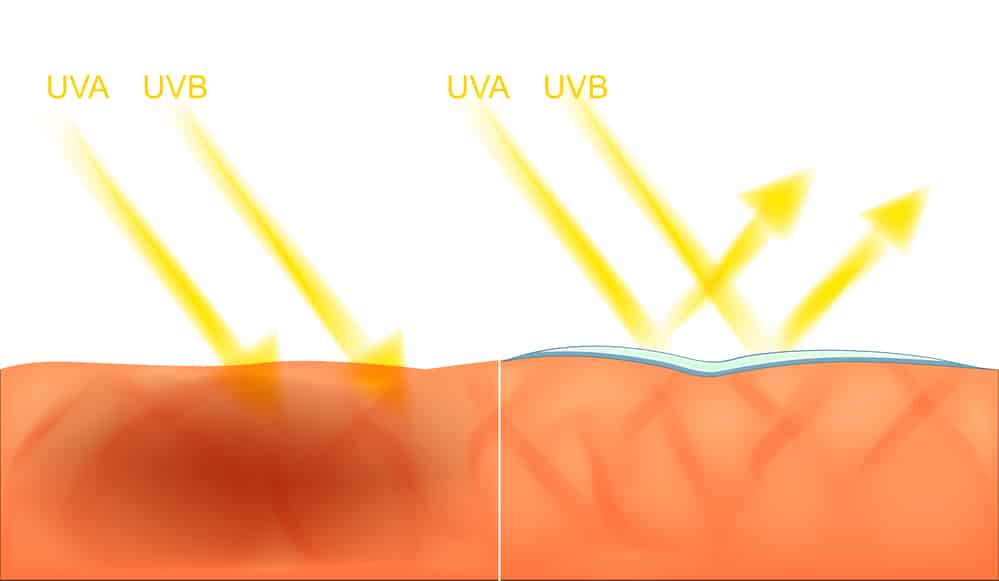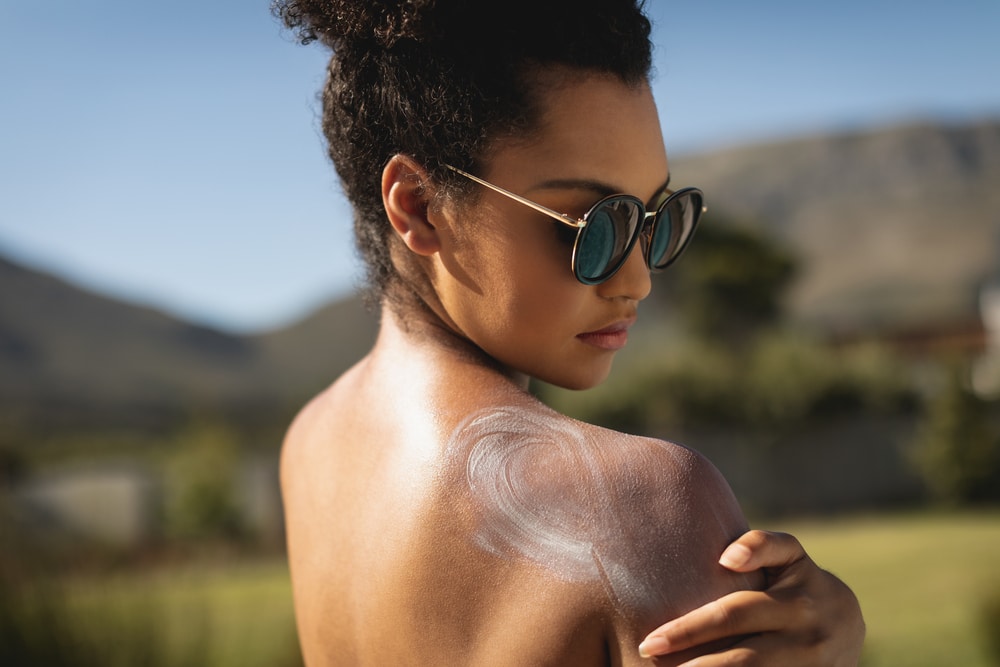
When it comes to sunscreen, you expect it to be able to protect your skin from UV rays. If it doesn’t do this and you get sunburnt, you may be able to sue the sunscreen company. Bear in mind that this can be very difficult to prove, as many other factors could be the cause of your sunburn.
Here is what you need to know about sunburns, what increases your risk of getting sunburnt, and what to do if you want to sue a sunscreen company.
About Sunscreen Use
There is a lack of education about sunscreen here in the United States. Many people assume that you only need sunscreen if you have fair skin that burns easily and you’re either going to the beach or on a hike. However, people of all skin tones need to wear sunscreen on a daily basis in order to protect themselves from sun damage.
Sunburns can range from mild to severe. In rare cases, sunburns may warrant hospital admission, such as ones that blister. Sunburns can increase your risk of premature aging and skin cancer. As such, it’s important to take appropriate sun protection measures.
Risk Factors Increasing Your Risk Of Getting Sunburnt
Sunburn is caused by too much exposure to the sun’s UV rays or artificial UV rays, as found in tanning beds. The biggest risk is the amount of time you’re exposed, plus the intensity.

Many factors impact this, such as medications, high altitude, clear skies, ozone depletion (parts of the world with decreased ozone/holes in ozone layer), time of day (especially 10am-2pm), and skin phototypes. People with fair skin are at the highest risk for sunburns, though people with darker skin tones can still suffer sun damage to their skin and should still wear sunscreen in order to reduce their risk of skin cancer.
People who only use sunscreen have a higher likelihood of burning than people who combine sunscreen use with other sun-protective measures.
What If Sunscreen Isn’t Enough?
If you have a certain condition, use a certain medication, or you just have really pale skin, sunscreen alone may not be enough to protect you from sunburns. Dermatologists advise broad spectrum sunscreens of at least 30 SPF, avoiding the sun during peak hours, wearing protective clothing and hats, and gravitating towards the shade.
If you are particularly susceptible to sunburn, you should talk to your dermatologist, as they will be able to provide you with personalized advice for your specific circumstances. For instance, if you have very pale skin, SPF 30 may not be anywhere near high enough for you. You may need to use a much higher SPF and reapply more frequently than sunscreen labels advise in order to keep your skin protected.
Ensure You’re Using Sunscreen Properly

You likely can’t sue a sunscreen company because you got sunburnt if you weren’t using the product properly.
SPF should be applied as directed. Typically, this means 15 minutes before sun exposure, with reapplication every 90 minutes after this. Sunscreens will dictate specific directions for their use on their label. For optimal results, follow them, while keeping in mind conditions that may cause you to need stronger sunscreen or more frequent application.
Many people who get sunburns get them because they weren’t using a high enough SPF, were not reapplying as needed, or were not using sunscreen at all, either because they thought they didn’t need it or because they didn’t expect to be outside for as long as they were.
Can You Sue A Sunscreen Company If You Were Using The Sunscreen Properly?
While most sunburns are the result of user error, this isn’t always the case. Sunburns can also result from a poor product, either from a bad batch, false advertising, or other such negligence. Depending on the cause of your sunburn, you may or may not have cause to sue a sunscreen company if you get sunburnt.
There are cases in which you follow the sunscreen’s instructions to a T and you have no extenuating circumstances and conditions and still suffer sunburns. In this case, you may consult with a personal injury attorney in order to determine whether or not you can sue a sunscreen company.

Previous Instances Where People Did Sue A Sunscreen Company
There have been class action suits filed against sunscreen companies for factors like including harmful chemicals, like benzene, to being untruthful about their sunscreen’s properties, such as a sunscreen that was labeled SPF 50 actually being SPF 12.
Sunscreens have tested positive for benzene, which can actually increase risk for other types of cancers, leading to recalls and lawsuits as with Johnson & Johnson. Benzene is a carcinogen, aka, a substance, organism, or agent capable of causing cancer. Benzene shouldn’t be in sunscreen – especially when it isn’t listed in the ingredients. It is linked to leukemia and other blood cell cancers.
Honest Company was landed in a $5 million class action lawsuit for false advertising and physical harm to customers after people suffered from severe burns after using their SPF 30 sunscreen.
Banana Boat was accused of defrauding customers with false SPFs, with almost half of the tested sunscreens having a lower SPF than labeled.
Factors You Need To Prove To Sue A Sunscreen Company
In order to sue a sunscreen company, 4 things must be demonstrated:
- You were owed a duty of care.
- There was negligence in said duty.
- You suffered injury or damage due to said negligence.
- This injury or damage can be demonstrated legally.
These are the factors needed for all personal injury cases.
Do You Want To Know Whether You Have A Personal Injury Case?
If you’ve been injured due to the negligence of a sunscreen company, you may deserve compensation. Consult with a personal injury attorney in order to determine whether or not you have a case.
LeBaron & Jensen provides representation to personal injury victims throughout Utah, Wyoming, Colorado, and Arizona. Contact us today to schedule a free consultation.
